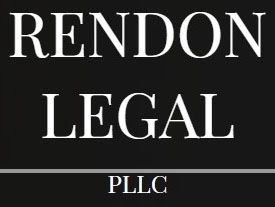How to Find a Reliable Estate Planning Attorney
Estate planning is a crucial component of financial and personal preparedness, yet many overlook its importance until it's too late. The process involves making decisions about the distribution of your assets, healthcare directives, and guardianship, among other things, which requires precise legal documentation. Securing a reliable estate planning attorney ensures that your wishes are thoroughly documented and legally binding, providing peace of mind for you and your loved ones.
According to MarketWatch, while over 80% of Americans understand the importance of estate planning, only around 30% have an active will, and even fewer have a trust. This lack of adequate planning leaves many families without clear direction, making the role of a competent estate planning attorney even more critical. An attorney can guide you through the complexities of estate law, helping demystify the jargon and making the process more approachable.
Choosing the right attorney is vital for effective estate planning, as they play a key role in understanding your personal and financial goals and crafting a plan that caters specifically to them. They ensure all legal avenues are explored, documented correctly, and updated as laws or circumstances change. Through proper guidance, your estate plan can address all contingencies, prevent family disputes, and protect your legacy for future generations.
Understanding Their Role
Estate planning encompasses more than simply dividing your assets; it involves carefully managing and planning the future of your personal and financial affairs. This often includes drafting wills, establishing trusts, and designating beneficiaries that align with your long-term goals. By understanding these components, an estate planning attorney helps to ensure that your estate matters are handled according to your wishes posthumously.
An estate planning professional provides valuable insights into how state and federal laws will impact your estate. They help in tailoring strategies that minimize taxes and manage the transfer of wealth in the most efficient manner possible. With the complexities involved in laws related to estate tax and inheritance, their expertise becomes indispensable in planning your estate comprehensively.
Furthermore, choosing an attorney who truly understands your needs can significantly ease the burden of making these difficult decisions. While many individuals recognize the importance of estate planning, there remains a gap in active implementation due to uncertainties in navigating legalities. An attorney helps close this gap by explaining your options and ensuring your plan is legally sound.
The estate planning process heavily relies on a range of legal documents that are crucial for substantiating your wishes. These documents include wills, trusts, powers of attorney, and healthcare directives, each serving its specific purpose. An estate planning attorney drafts these documents to ensure compliance with the prevailing laws and that they are reflective of your intentions.
Wills and trusts are fundamental in communicating who inherits your assets and under what conditions. Powers of attorney and healthcare directives further extend your preparations to situations where you might become incapacitated and unable to make decisions for yourself. By having these documents in place, you not only safeguard your assets but also provide decisiveness in unforeseen circumstances.
The fact that many Americans lack any form of estate-planning document underscores the critical gaps that exist in individual preparedness. A qualified attorney's role is to address and mitigate these gaps by ensuring you have a comprehensive set of documents that abide by both your desires and the letter of the law. This preparation prevents your estate from falling into intestacy, where state laws determine the division of your estate instead of your wishes.
Identifying Your Specific Needs
One of the initial steps in estate planning involves assessing the size and complexity of your estate to determine its specific requirements. This evaluation provides crucial insight into the types of documents needed and helps identify potential challenges. An estate planning attorney is instrumental in conducting this thorough assessment and advising on the best course of action.
Having a wide array of assets, such as investments, properties, and business interests, heightens the complexity of your estate. The attorney helps you catalog these assets, review ownership documents, and suggest strategies for efficient management and distribution. By doing so, you'll know precisely where your estate stands and how to address each component for optimal results.
Business ownership or the presence of family trusts adds another layer that complicates the estate planning process. These elements necessitate special consideration, as they require tailored approaches to address unique legal and financial implications. An estate planning professional with experience in business continuity planning or trust management is invaluable in shaping a strategy that accommodates these specialized needs.
Business-related considerations often involve succession planning, determining future leadership, and minimizing disruptions to the operation. Similarly, family trusts might require modifications to best suit evolving family structures or maximize asset protection. Your attorney guides the selection of structures and documents that align with your vision, ensuring business and personal interests coexist harmoniously.
Health care directives are a crucial component of estate planning, addressing what actions should be taken in the event you're unable to make medical decisions for yourself. These directives include living wills and durable powers of attorney for health care, which an estate planning attorney helps draft to reflect your personal preferences. They provide clarity and instructions to family members and medical practitioners during critical times, ensuring decisions are in line with your wishes.
Without well-drafted health care directives, families may face difficult decisions during emotionally charged situations without clear guidance. This can lead to conflicts and potential legal challenges if family members disagree on the appropriate course of action. The guidance of an attorney helps ensure these documents are comprehensive, legally compliant, and accurately reflect your health care preferences.
Key Qualifications to Look For
The experience and specialization of an estate planning attorney are critical measures of their capability to address your unique needs. Experienced attorneys have familiarity working with various estate sizes and complexities, offering nuanced insight and strategies refined through practice. Specialization in estate planning indicates a dedicated focus and advanced understanding of specific legal frameworks, ensuring more informed and competent guidance over general practitioners.
When evaluating an attorney's experience, consider the range of their practice, case studies, and testimonials from previous clients. An established record of successful estate plans reflects practical knowledge, skill in anticipating potential issues, and the ability to deliver results. Having specialized experience is particularly beneficial for complex estates involving multiple trusts or business interests, where expert handling is required to navigate intricate scenarios.
The reputation of an estate planning professional within the legal community serves as an essential indicator of their reliability and effectiveness. A positive reputation signifies respect among peers, ethical practices, and consistent delivery of high-quality legal support. Feedback from other legal professionals and peers provides insight into an attorney’s competency, professionalism, and integrity.
Reputable attorneys often participate in community initiatives, present at legal seminars, or contribute to publications, showcasing their dedication and leadership within their field. These activities demonstrate an attorney’s commitment to advancing the interests of estate planning while building credibility and trust among professional circles. An attorney with strong endorsements is likely to provide value and expertise a client can depend on.
The gap between recognizing the importance of estate planning and actually taking action is significant, but it’s a gap you can close today. By working with an experienced attorney, you can gain clarity, confidence, and a comprehensive plan tailored to your unique circumstances. If you’re ready to create a plan that truly protects your legacy, contact Rendon & Associates for personalized estate planning guidance that puts your needs first.






Share On: